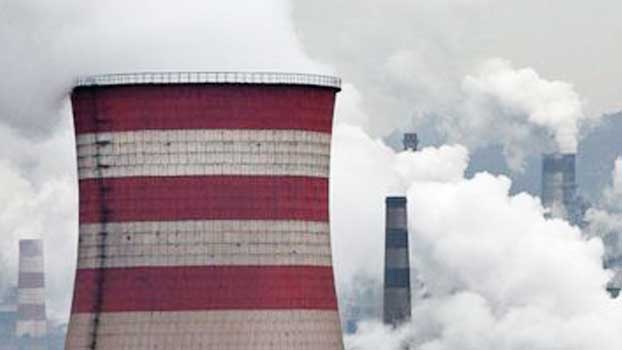City of London wants to clean up the world
Britain is aiming to be a hub for carbon credit and green derivatives trading. It has the know-how but how much of a market is


Britain believes it has chosen the ideal moment to throw its weight behind a financial innovation that might help save the world. As part of Prime Minister Boris Johnson’s blueprint to fight the climate emergency, the U.K. is exploring the creation of a London-based international market in carbon offsets, carbon credits and derivatives linked to emissions-cutting investments.
The plan sounds noble. Should it really take off, you might even be able to reduce your personal emissions by buying an offset when you do environmentally damaging things like fill up your car with gas, or buy a cup of coffee. But betting on this utopian-sounding outcome would be premature.
After many previous efforts to spur carbon trading failed amid a lack of clear government policy, this might be one of the better chances to get a market going. Companies that struggle to cut their own carbon footprints could certainly do with a deep, liquid pool of credits they can buy to help them satisfy the demands of increasingly green investors. Xi Jinping’s announcement that China aims to reach carbon neutrality by 2060 and President-elect Joe Biden’s push for a net-zero economy by 2050 could give any embryonic market a jolt.
Former Bank of England Governor Mark Carney, now a United Nations climate envoy, thinks a global carbon-offset market should be worth “tens or hundreds of billions” of dollars, many times the current $300 million. And Johnson spies a central role for the City of London as a trading hub, to help cushion the post-Brexit loss of other financial business to the European Union.
There’s competition for London, not least from its sparring partners in Brussels. The European Commission is weighing an overhaul of its own emissions-trading scheme, which is already the biggest carbon market. Futures contracts on these carbon-emission allowances trade on the ICE exchange, and the price there has recovered strongly after a sharp correction during the first coronavirus lockdowns.
London, however, has a history in cutting-edge finance, a deep talent pool and a strong lead in the trillion-dollar swaps market. It’s a logical place to base the trading of carbon credits, and the derivative-like contracts that companies’ would want to tailor for their individual needs, were the worldwide carbon credit market to take off.
Unfortunately, it’s far from certain that it will.
First off, the global price for carbon emissions needs to be much higher to get a proper international market going. The current average price of $3 per metric ton reflects the abundance of credits from different countries and the exemptions for polluters. It would probably need to rise to $75-$100.
Even with a stronger reference price, there are significant practical obstacles to a reliable and effective carbon market. Common international principles and standards on credits are still missing and the market lacks transparency. Take a reforestation project, for example. Investors would need assurances that the trees are actually being planted and that they’re not double-counted to back other credits.
Such is the murkiness of carbon credits that Bill Winters, the Standard Chartered PLC boss who’s assessing the scaling up of the market, says it might end up being rigged just like interest-rate benchmarks. An independent agency could try to enforce standards, but vetting the supply of credits and cross-border purchases would be a big endeavor. Twenty countries — led by Indonesia, Brazil and the Democratic Republic of Congo — account for most of the potential supply of credits, while much of the demand comes from Europe and the U.S.
Fraud and money laundering would be an issue. The temptation for traders to get rich off a fictitious forest might be too great to overcome.
With the U.K. leaving the EU, there will have to be a decision on melding with existing European standards or formulating a wider, more flexible global alternative that can build critical mass. Perhaps London and Europe could try to coexist.
But for now a global carbon credit system is a mere concept, while the world’s leaders decide whether they want to work together.
Elisa Martinuzzi is a Bloomberg Opinion columnist covering finance. Marcus Ashworth is a Bloomberg Opinion columnist covering European markets.
Source: Bloomberg



